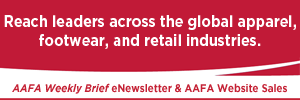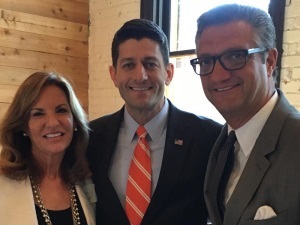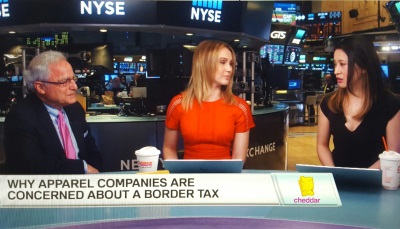April 3: Managing unpredictability is an intrinsic part of a supply-chain executive’s job. But the first months of Donald Trump’s presidency have added new uncertainty about operations, and raised urgent questions over how companies can prepare for the twists and turns that administration statements have triggered in trade, taxation and investment. ... Still, there are several things supply-chain executives can and should do to stand ready in this climate of volatility. ( Source: Wall Street Journal)
|
March 30: In 1900, 30 million people in the United States were farmers. By 1990 that number had fallen to under 3 million even as the population more than tripled. So, in a matter of speaking, 90% of American agriculture workers lost their jobs, mostly due to automation. Yet somehow, the 20th century was still seen as an era of unprecedented prosperity. In the decades to come, we are likely to see similar shifts. ... This creates a dilemma for leaders. Clearly, any enterprise that doesn’t embrace automation won’t be able to survive any better than a farmer with a horse-drawn plow. At the same time, managers need to continue to motivate employees who fear their jobs being replaced by robots. In this new era of automation, leaders will need to identify new sources of value creation. ( Source: Harvard Business Review)
|
March 29: Nearly four years ago, an industrial building in Bangladesh collapsed, killing more than 1,100 people, highlighting the dangers faced by workers in the textile industry there. What’s much less known are the conditions in the leather industry in Bangladesh,where workers are exposed to toxic chemicals, and where the waste has created one of the world’s dirtiest manufacturing sites. ( Source: PBS NewsHour)
|


April 4: ... as the dust settles and governing begins, America should remember that Canada and Mexico are two of our most important trading partners and, quite frankly, any disruption to that characterization does more harm than good. Of course, it's easy for candidates to be critical of an outsized trade deal, simply because they have nothing to lose. However, trade trashing is a dangerous game, and if NAFTA collapses, we would all end up worse off. (Source: The Hill, op-ed from AAFA's Rick Helfenbein)
|
March 31: President Donald Trump signed two executive orders on Friday, which lay the groundwork for fulfilling key campaign promises to make trade more fair. ... For all of Trump's passionate rhetoric, the two orders are small first steps in an ambitious trade agenda that seeks to revitalize American manufacturing. ( Source: CNBC)
|
March 29: Change, it would seem, is in the air. Change to the North American Free Trade Agreement to be more precise. The question a lot of textile, apparel and footwear executives are asking themselves these days is: What’s the one change to NAFTA I would want? ( Source: Sourcing Journal, op-ed from AAFA's Steve Lamar)
|
March 29: Europe's top court [began] a landmark case on Thursday which could determine whether luxury goods companies can stop retailers from selling their products via marketplaces such as Amazon or eBay. Owners of luxury brands have been fighting with online retailers for the last decade, arguing that they should have the right to choose who distributes their products to protect their luxury image and exclusivity. Online platforms dispute this, saying that such restrictive distribution deals are anti-competitive and hurt consumers. ( Source: Reuters)
|
March 29: ... While the UK's exit from the EU will not prove to be a simple divorce, under EU rules, there will be a two-year transitionary period, during which time the UK government will negotiate its exit from the EU, and IP-related laws (namely, those involving trademarks, copyrights, and patents) will remain largely unchanged. ( Source: The Fashion Law)
|
March 27: The global trend in counterfeiting and piracy is forecast to increase during the decade with China at the heart of production of fake goods from clothes to electronics, and risky fake medicines and cosmetics. But governments and businesses are looking to challenge the commercial threats posed by counterfeiting with steps to detect fake goods and protect brands and jobs. ( Source: Voice of America)
|


In Brief
Take action NOW to stop the BAT: Ask AAFA about the latest ways to help educate, advocate, collaborate, and mitigate as it relates to AAFA’s response to the proposed Border Adjustment Tax (BAT). Here are a few ways to start:
- Start here to join 4,500 other colleagues by sending a pre-written email to your Members of Congress.
- Work with like-minded organizations and associations as part of the Americans for Affordable Products (AAP) Coalition. Join AAFA and others in working with the AAP by contacting Steve Lamar.
- Share your perspectives with AAFA using this survey.
- Join our Member-only webinar on May 4: Going to BAT on Tax Reform & Do We Hafta NAFTA...Again?
|
|
AAFA Chairman in Washington: New AAFA Chairman Paula Zusi, Global Operations Advisor - Retail Supply Chain at Advent International Corporation, visited D.C. on March 29 to discuss her platform over the next year and engage with legislators on the key issue of the day for AAFA members - the Border Adjustment Tax (BAT). We’re thrilled to have Paula at the helm for 2017-2018!

AAFA Chairman Paula Zusi with Speaker Paul Ryan
(R-WI) and Manny Chirico of PVH Corp. |
_newsletter.jpg)
AAFA Chairman Paula Zusi with Senator
Tom Carper (D-DE) |
AAFA in the news on the BAT: President and CEO Rick Helfenbein on Cheddar live last week, discussing the potential impacts of the Border Adjustment Tax (BAT) on the apparel and footwear industry. The full interview can be found here.

Voicing concerns about Federal Prison Industries: In response to a request for comments by the U.S. Department of Commerce about ways to promote domestic manufacturing, AAFA outlined concerns with Federal Prison Industries (FPI) and the predatory way in which the federal prison factory complex hurts U.S. companies, including small businesses. Read the letter here.
In the last week AAFA also submitted comments opposing a new gender pricing bill in California, joined 97 other organizations in sending a letter opposing a new California container fee proposal, and filed rebuttal comments with the Federal Maritime Commission (FMC) in response to unreasonable demurrage and detention fees.
See all of AAFA’s latest letters, comments, and testimony here.
Congress and government agencies solicit comments on a range of issues that may affect your business – find a list of comment opportunities here.
Just three weeks until the AAFA American Image Awards! We're counting down the days until the American Image Awards, during which we will honor visionaries from Theory, Marc Fisher Footwear, Coach, and Nick Graham, along with Ed Nardoza of Women's Wear Daily. Check out AAFA President and CEO Rick Helfenbein's thoughts in Fashion Mannuscript.
|
Member Welcome: Aldo Group
 Based in Montreal, Aldo Group is a global footwear and accessories company with distribution through stores in over 100 countries and through department/footwear stores and e-commerce retailers around the world.
|
|
April & May
May 4 Webinar: Going to BAT on Tax Reform & Do We Hafta NAFTA...Again?
May 9-10 Government Contracts Committee Meeting
|
Attention AAFA members: register today for our next member-only webinar May 4!
|
|
Other Industry Events
NYC MarkMonitor Summit 2017
April 25, 2017 | New York City
Brand protection today matters more than ever, and brand owners must develop the right industry relationships and follow the latest innovations to be successful. Hear from AAFA’s own Steve Lamar at MarkMonitor’s NYC Summit. Steve will be joined by key government officials, law enforcement agencies, IP and legal professionals, and MarkMonitor customers who will share best practices that will impact your approach to brand protection.
|
|
| |
|

